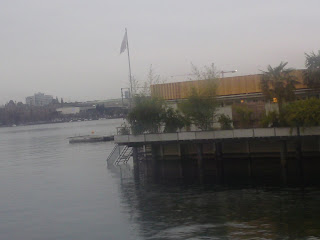
General comment: Across the board, banks have reduced lending from prior quarter. They are basically wanting to avoid additional defaults. YoY quarter profit growth is slim. Peer analysis should mainly focus on outliers:
Good outliers:
- Net interest margin- thanks to the GoK bond, NBK is enjoying healthy interest income without sweat. It'll be on-going for a while yet.
- Cost Income ratio- this is good because it basically translates to a higher return on capital the more you can get from each shillingi you spend. StanChart despite anaemic income growth, has managed (via use of technology) to maintain leadership here.
- Return on capital- both UK banks standout. No real surprise because this is something that tends to be return as a personal development goal for CEOs/FDs of many UK banks.
- Insider loans as prop of loans: Equity stands out for low prop. Insider loans are notorious source of loan book instability for Kenyan banks.
- Excess liquidity ratio: It bears pointing out that Lehman was brought down by lack of liquidity. Stanchart looks really strong. A bit strange given recent report about all banks but Equity struggling for the stuff.
- Capital/RWA ratio: Equity is standout. This ratio can make or break business. It signifies a bank's ability to grow, but also to absorb nasty stuff like loan loss provisions aka bad debt write-offs.
Bad Outliers:
- NIM- NIC and DTB must be paying over the odds for deposits. I understand this is what prompted NIC to be among the first to loan rates last year.
- Cost income ratio-KCB's burden. Equity says it is in its investment phase hence the massive increase in staff costs. Keep an eye out.
- YoY PAT growth- Whats up KCB?
- Fwd P/E- Given the lowered growth rate for the year, the fwd multiple for 2009 looks too rich for Equity. Ksh10 looks more comfortable until we see what Q3/4 brings in.
- NPLs as a prop of loans- Equity (perhaps unsurprisingly given target class and seeing K-Rep), is out here. Several pts of note. Several yrs back, I remember a blogger mentioning that Equity recognises NPLs much earlier than other banks. I'll confirm this in another blog. 2ndly, because of its capital capacity, it can still absorb the whole of its NPL fairly comfortably.














